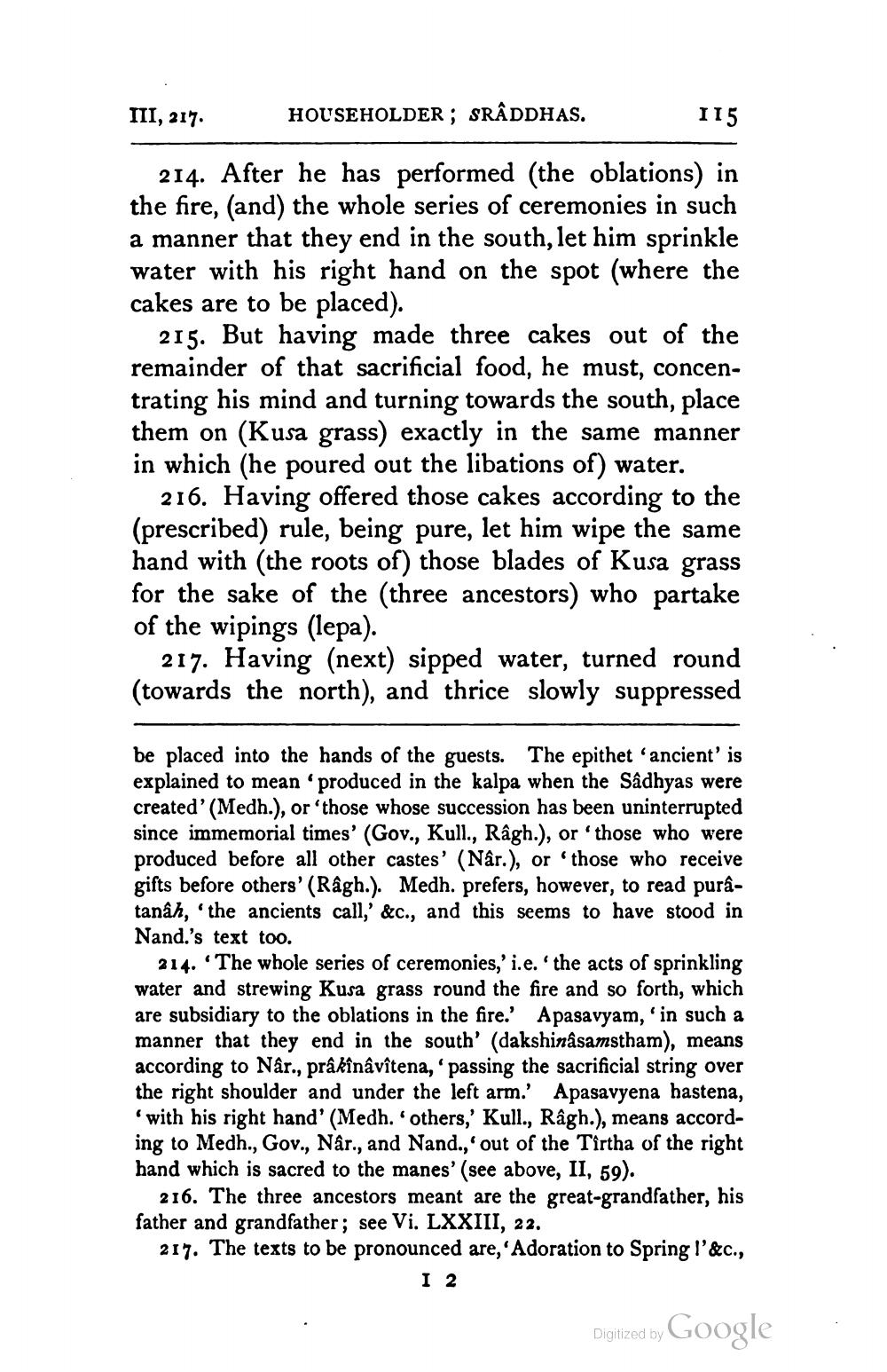________________
III, 217.
HOUSEHOLDER; SRADDHAS.
115
214. After he has performed (the oblations) in the fire, (and) the whole series of ceremonies in such a manner that they end in the south, let him sprinkle water with his right hand on the spot (where the cakes are to be placed).
215. But having made three cakes out of the remainder of that sacrificial food, he must, concentrating his mind and turning towards the south, place them on (Kusa grass) exactly in the same manner in which (he poured out the libations of) water.
216. Having offered those cakes according to the (prescribed) rule, being pure, let him wipe the same hand with (the roots of) those blades of Kusa grass for the sake of the (three ancestors) who partake of the wipings (lepa).
217. Having (next) sipped water, turned round (towards the north), and thrice slowly suppressed
be placed into the hands of the guests. The epithet 'ancient' is explained to mean 'produced in the kalpa when the Sâdhyas were created' (Medh.), or those whose succession has been uninterrupted since immemorial times' (Gov., Kull., Râgh.), or those who were produced before all other castes' (När.), or those who receive gifts before others' (Râgh.). Medh. prefers, however, to read puratanah, 'the ancients call,' &c., and this seems to have stood in Nand.'s text too.
214. The whole series of ceremonies,' i.e. the acts of sprinkling water and strewing Kusa grass round the fire and so forth, which are subsidiary to the oblations in the fire.' Apasavyam,'in such a manner that they end in the south' (dakshinasamstham), means according to Når., prâkînâvîtena,' passing the sacrificial string over the right shoulder and under the left arm. Apasavyena hastena,
with his right hand' (Medh..others,' Kull., Râgh.), means according to Medh., Gov., Nár., and Nand.,'out of the Tirtha of the right hand which is sacred to the manes' (see above, II, 59).
216. The three ancestors meant are the great-grandfather, his father and grandfather; see Vi. LXXIII, 22. 217. The texts to be pronounced are,'Adoration to Spring I'&c.,
I 2
Digitized by Google




